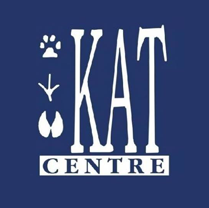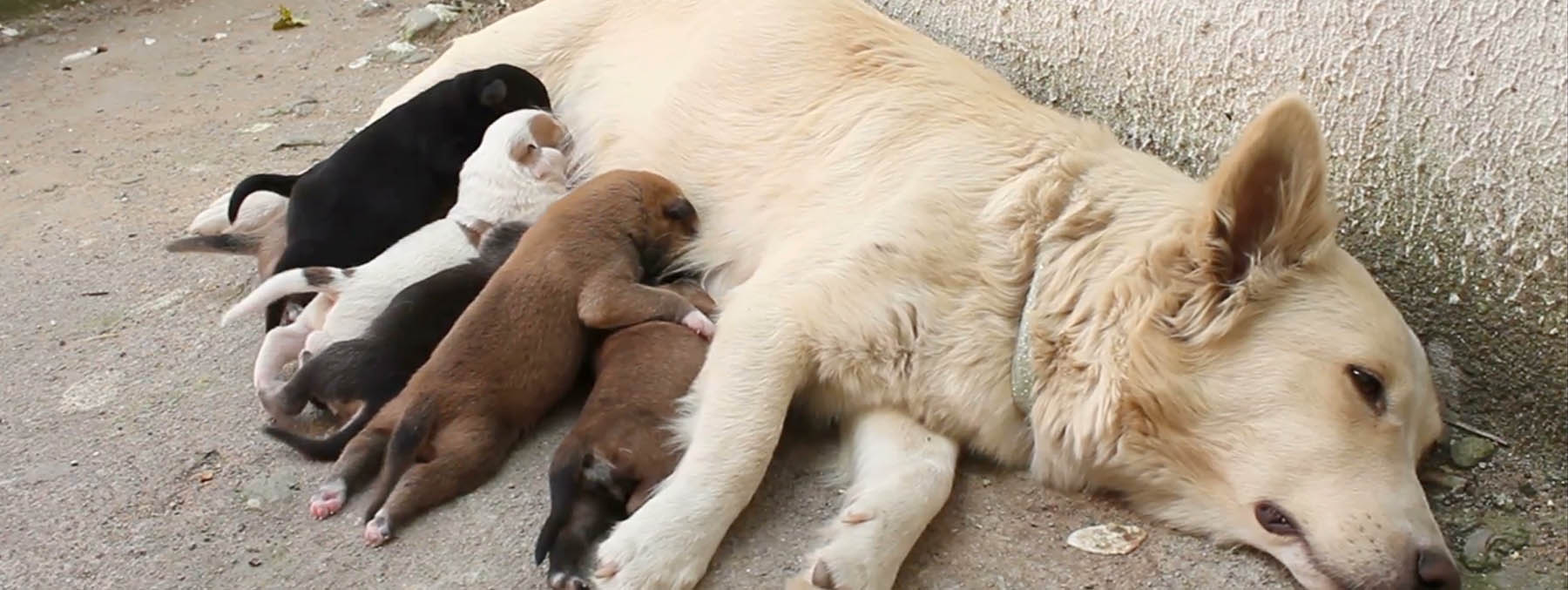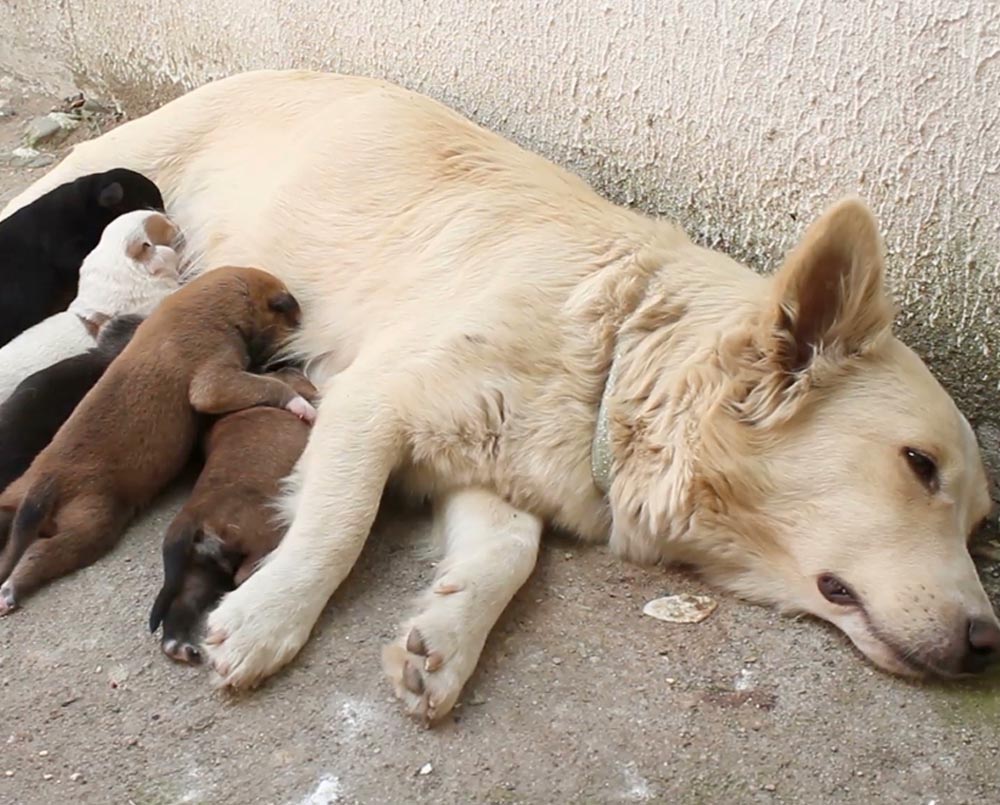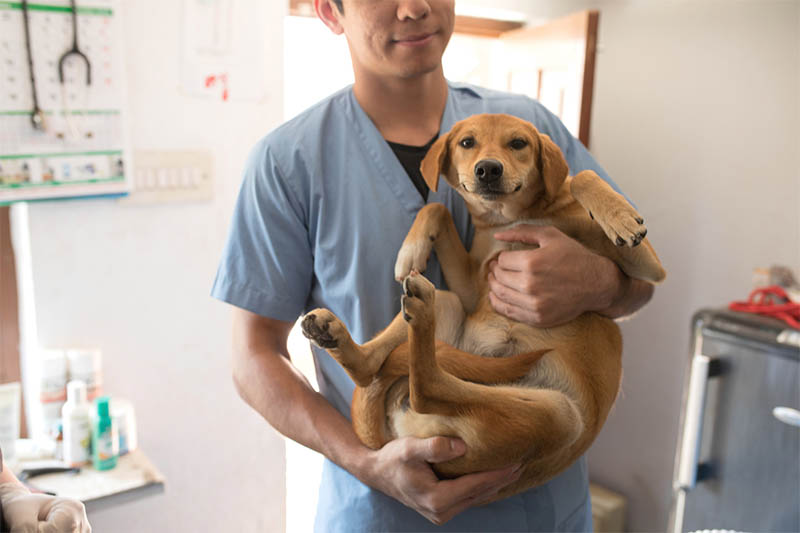The KAT Centre’s Animal Birth Control (ABC) program started in May 2004 and operates along the World Health Organisation’s guidelines for the management of stray dog populations. Using the principles of systematic sterilization, we aim to spay at least 80% of females, working area by area in an organised way to ensure optimal results in the long term.
As well as being supported by scientific research, we capture and spay dogs in a humane way, observing them post-op for any signs of infection before releasing them back to the community that they came from. The whole process is conducted in a smooth and efficient way, minimizing stress and discomfort.
These precautions are essential in a country like Nepal where the street dogs are likely to have compromised immune systems and where hygiene standards are less strict. In fact, when dogs are spayed by private vets and other organisations, the mortality rates can be as high as 20%. This means that on average, for every five dogs spayed by these organisations, one will die from subsequent infection. At KAT we favour quality of care over speed and generally wait 48-72 before releasing, when we are sure that the animal has fully recovered without any side effects.
On average we sterilize six dogs per day, and we designate a specific area of our centre to house these dogs for monitoring after their operations. This reduces the chance of diseases being spread, and limits stress caused by interactions with our other animals.






